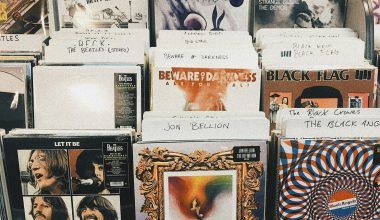If you’ve ever wondered how your favorite artists get their songs into playlists, music stores, or streaming platforms like Spotify and Apple Music, the answer often lies in something called a distribution deal. But what is a distribution deal in music? Let’s dive in and break it down in the simplest way possible.
What Does a Distribution Deal Mean?
A distribution deal in music is essentially an agreement between an artist or a record label and a distribution company. The distribution company’s job is to get the artist’s music to as many listeners as possible. This could mean distributing physical CDs and vinyl to stores or, more commonly these days, making sure the music gets on streaming platforms and online stores.
Think of it as a bridge. The artist creates the music, but without a distributor, that music might not reach an audience. The distribution company makes the connection between the artist’s work and the fans who want to hear it.
How Do Distribution Deals Work?
Now that we’ve covered what a distribution deal is, let’s talk about how it works. Once an artist or label signs a distribution deal, the distributor takes the artist’s music and puts it on various platforms. These platforms could include streaming services, digital stores like iTunes, or even physical retailers for CDs and vinyl.
The distributor may also handle other tasks like:
- Ensuring the music is properly tagged and formatted for digital platforms.
- Collecting data and analytics on how well the music is performing.
- Managing payments and royalties earned through streams and sales.
The terms of the deal—such as how long it lasts and how much the artist earns—depend on the agreement. Some deals involve upfront fees, while others might take a percentage of the revenue generated from the music.
Why Are Distribution Deals Important?
Distribution deals are crucial because they allow artists to focus on what they do best: creating music. Without a proper distribution network, even the most amazing songs could end up unheard. Distributors ensure that music reaches the right platforms, in the right format, at the right time.
For emerging artists, signing a distribution deal can be a game-changer. It provides access to a global audience and ensures their music gets the exposure it deserves. Even for established artists, a good distribution deal can amplify their reach and maximize revenue.
Types of Music Distribution Deals
Not all distribution deals are the same. Let’s take a closer look at some common types:
1. Traditional Distribution Deals
In a traditional deal, the distributor takes physical copies of the music—like CDs or vinyl—and ensures they’re stocked in stores. This type of deal was more common before the digital age but is still relevant for artists who want to sell physical formats.
2. Digital Distribution Deals
Digital distribution deals are the most common today. These agreements ensure that an artist’s music is available on streaming platforms, online stores, and sometimes even social media channels. Examples of digital distributors include TuneCore, DistroKid, and CD Baby.
3. Aggregators
Aggregators are similar to digital distributors but often cater to independent artists. They provide tools for uploading music to multiple platforms at once, saving time and effort. These services usually charge a flat fee or take a small cut of the revenue.
4. Major Label Distribution
Artists signed to major record labels often have distribution built into their contracts. Major labels like Universal Music Group or Sony Music have their own distribution arms, which means they handle everything from production to getting music out to the masses.
What Are the Pros and Cons of Distribution Deals?
Like any business arrangement, distribution deals have their advantages and drawbacks. Let’s explore both sides.
Pros:
- Wider Reach: Distributors have the networks and expertise to get music to a global audience.
- Time-Saving: Artists can focus on making music while the distributor handles the logistics.
- Data and Analytics: Many distributors provide insights into how the music is performing.
- Professional Presentation: Proper formatting and tagging ensure the music looks professional on platforms.
Cons:
- Costs: Some deals involve upfront fees or a percentage of revenue.
- Less Control: Artists may need to rely on the distributor’s timeline and processes.
- Competition: With so many artists using digital platforms, standing out can be challenging.
How to Choose the Right Distribution Deal
Choosing the right distribution deal depends on your goals, budget, and level of experience. Here are a few tips:
- Define Your Goals: Are you looking for global reach or targeting a specific niche?
- Understand the Costs: Know whether you’ll pay upfront fees or share revenue.
- Research Options: Compare different distributors to find one that aligns with your needs.
- Read the Fine Print: Ensure you understand the terms of the deal, including any exclusivity clauses.
Common Misconceptions About Distribution Deals
There are a lot of myths about what a distribution deal in music can or cannot do. Let’s clear some of them up:
- Myth 1: A Distribution Deal Guarantees Success Signing a distribution deal doesn’t mean your music will automatically become a hit. Promotion and marketing still play a huge role.
- Myth 2: Only Big Artists Get Distribution Deals In reality, many independent artists have access to digital distribution platforms that make it easy to get started.
- Myth 3: Distributors Handle Everything While distributors do a lot, things like social media marketing and fan engagement are still up to the artist.
Final Thoughts on Distribution Deals
A distribution deal in music is an essential step for artists who want to share their work with the world. Whether you’re an indie musician releasing your first single or a seasoned artist looking to expand your reach, finding the right distributor can make all the difference. Take the time to research, understand the terms, and choose a partner that aligns with your vision. With the right deal, your music could reach ears you’ve only dreamed of.
For further reading, explore these related articles:
- Circles Post Malone Lyrics – A Song About Love, Loss, and Life
- Billie Eilish’s Big Moment at the Oscars 2022: A Night to Remember
For additional resources on music marketing and distribution, visit DMT Records Pvt. Ltd..






